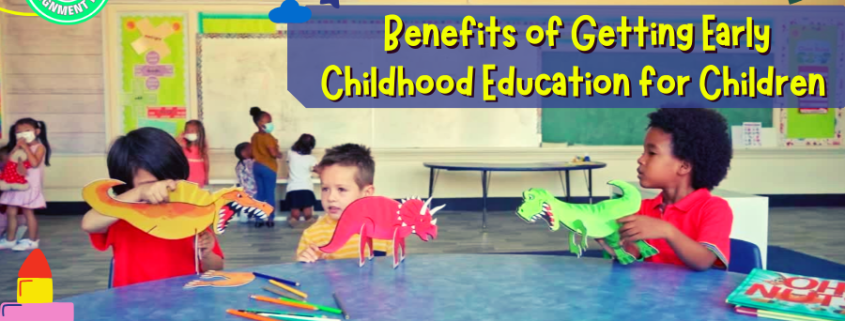Study the benefits of getting early childhood education for children
Early childhood education (ECE)
The benefits of getting an early childhood education for children are supported by a wealth of research. But how does this affect children, and what are the exact benefits?
First of all, there are many advantages to early childhood education (ECE) in shaping the lives of young children. Young children have much higher neuroplasticity, allowing them to create neurons and connections much faster. Thus, giving them an early education can be greatly beneficial not only for their academic success.
Introduce children to various skills
Although also their social life in general. ECEs are developed to maximize the children’s potential in areas of social connections, learning, and much more.
Cognitive development programs for early childhood education (ECE) are designed to stimulate children’s cognitive growth through different structured environments. In these environments, children can learn essential life skills. Programs often include activities that introduce children to various skills, such as language, math, and social skills. These activities are interactive and engage children in their learning.
Prepared for a formal education
They can learn these essential skills. Not only that, but it is backed by research that indicates that children who are in a good ECE programme exit with much better cognitive abilities than their counterparts, especially in academic success.
Moreover, they prepare the children for formal schooling, whereas other children are not prepared for formal schooling from the get-go. However, through ECE, they are prepared for a formal education. Moreover, ECE programs have a strong emphasis on developing foundational skills such as reading, writing, and basic mathematics.
Cognitive development is one part
However, they develop a strong love for learning. Moreover, research has shown that they perform greatly in academics after attending an ECE programme when compared to other children who have not attended ECE programmes.
Cognitive development is one part; the other is emotional and social development of children. A lot of early childhood programs have a great amount of opportunity for children to socialize with their peers who are of the same age. This allows them to have a much more nuanced social skill set when compared to their peers. Socialization is a greatly important part of social life, especially in later stages of life.
Helping them express their emotions
Nevertheless, these skills are not only about social skill development; they are about creating a sense of empathy, sharing, and cooperation in children, which allows them to navigate and build friendships. This is going to be an essential skill for future interactions.
Additionally, the ECE programmes often have children engage in a vast amount of activities that promote resilience and emotional regulation. Often, the teacher becomes a guide in helping them express their emotions. As a child’s emotional regulation and constructively managing stress can create better early prevention from any emotional and mental health issues.
Early childhood education is invaluable
They may find themselves in a better position later. This also promotes emotional health and well-being throughout their life, as they have intervened early in the child’s emotional and mental health regulation. Children who learn to regulate their emotions are much more likely to develop positive relationships and exhibit much more socially accepted behavior when compared to their counterparts.
There are a lot of long-term benefits to early childhood programs that extend into adulthood. A lot of studies have shown that children who have been through ECE programs are much more likely to graduate high school, attend college, and secure much better-paying jobs, as the skills and sets of knowledge that they acquire through early childhood education is invaluable.
Likelihood of engagement in criminal
It gives them AH and a foundation for lifelong learning, career focus, and a career-driven mindset. Furthermore has shown that it promotes or reduces crime rates early childhood education programmes have contributed to lower crime rates in adulthood according to one study.
Thus, providing children with childhood education is going to reduce the likelihood of engagement in criminal activities in the foreseeable future. This can be achieved by fostering a sense of ethical values in the child as they grow up.
Early childhood education is a great investment
Early childhood education is a great investment in the future of children and society in general. It not only lays the groundwork for cognitive, social, and emotional skills but also for psychological development that will lead them towards successful careers and a better future.
Overall, social citizenship for society has a positive impact on the academic success of early childhood education (ECE), which is measurable and proven again and again. Moreover, the economic opportunities and health underscore its importance as a great tool to teach children.
academhelper.com academhelper.com
"Looking for a Similar Assignment? Get Expert Help at an Amazing Discount!"




